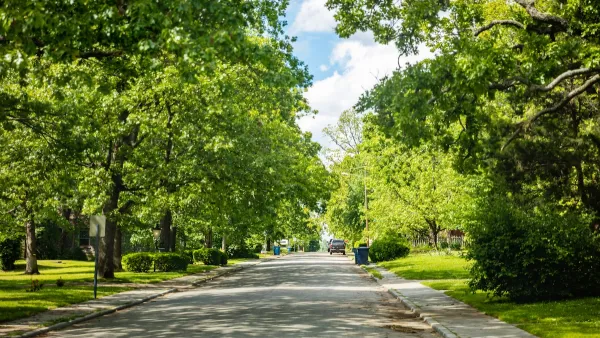Climate change is endangering oaks in the Great Lakes region by increasing their vulnerability to pests, diseases, and extreme weather, threatening their vital ecological role.

Oaks in the Great Lakes region face increasing threats from climate change, including rising temperatures, severe storms, and invasive pests, according to a study by Michigan Technological University. These conditions are stressing oak populations, leaving them vulnerable to diseases like oak wilt and attacks from insects such as the two-lined chestnut borer. The warming climate also extends the range and lifespan of harmful pests, exacerbating their impact on these vital trees. Oaks play a crucial ecological role, providing food and habitat for various wildlife species, including bears and turkeys, making their decline a significant environmental concern.
Invasive species and insufficient fire management further contribute to the challenges oaks face. The Michigan Tech study warns of emerging pests like oak gall wasps and stresses the need for vigilance in timber imports to prevent the spread of harmful insects. Historically, oaks thrived due to their adaptability to fire disturbances, which helped suppress competing species. However, the decline in controlled burns has reduced their ability to regenerate, compounding the threats posed by climate change.
Despite these challenges, oaks demonstrate resilience through their adaptation to extreme conditions and extensive root systems. Researchers emphasize the importance of monitoring pest populations and maintaining fire as a landscape management tool. Addressing these issues will be critical to preserving oak ecosystems and their broader environmental benefits in the face of a changing climate.
FULL STORY: Climate change puts oak trees in Great Lakes at risk

National Parks Layoffs Will Cause Communities to Lose Billions
Thousands of essential park workers were laid off this week, just before the busy spring break season.

Retro-silient?: America’s First “Eco-burb,” The Woodlands Turns 50
A master-planned community north of Houston offers lessons on green infrastructure and resilient design, but falls short of its founder’s lofty affordability and walkability goals.

Delivering for America Plan Will Downgrade Mail Service in at Least 49.5 Percent of Zip Codes
Republican and Democrat lawmakers criticize the plan for its disproportionate negative impact on rural communities.

Test News Post 1
This is a summary

Test News Headline 46
Test for the image on the front page.

Balancing Bombs and Butterflies: How the National Guard Protects a Rare Species
The National Guard at Fort Indiantown Gap uses GIS technology and land management strategies to balance military training with conservation efforts, ensuring the survival of the rare eastern regal fritillary butterfly.
Urban Design for Planners 1: Software Tools
This six-course series explores essential urban design concepts using open source software and equips planners with the tools they need to participate fully in the urban design process.
Planning for Universal Design
Learn the tools for implementing Universal Design in planning regulations.
EMC Planning Group, Inc.
Planetizen
Planetizen
Mpact (formerly Rail~Volution)
Great Falls Development Authority, Inc.
HUDs Office of Policy Development and Research
NYU Wagner Graduate School of Public Service





























